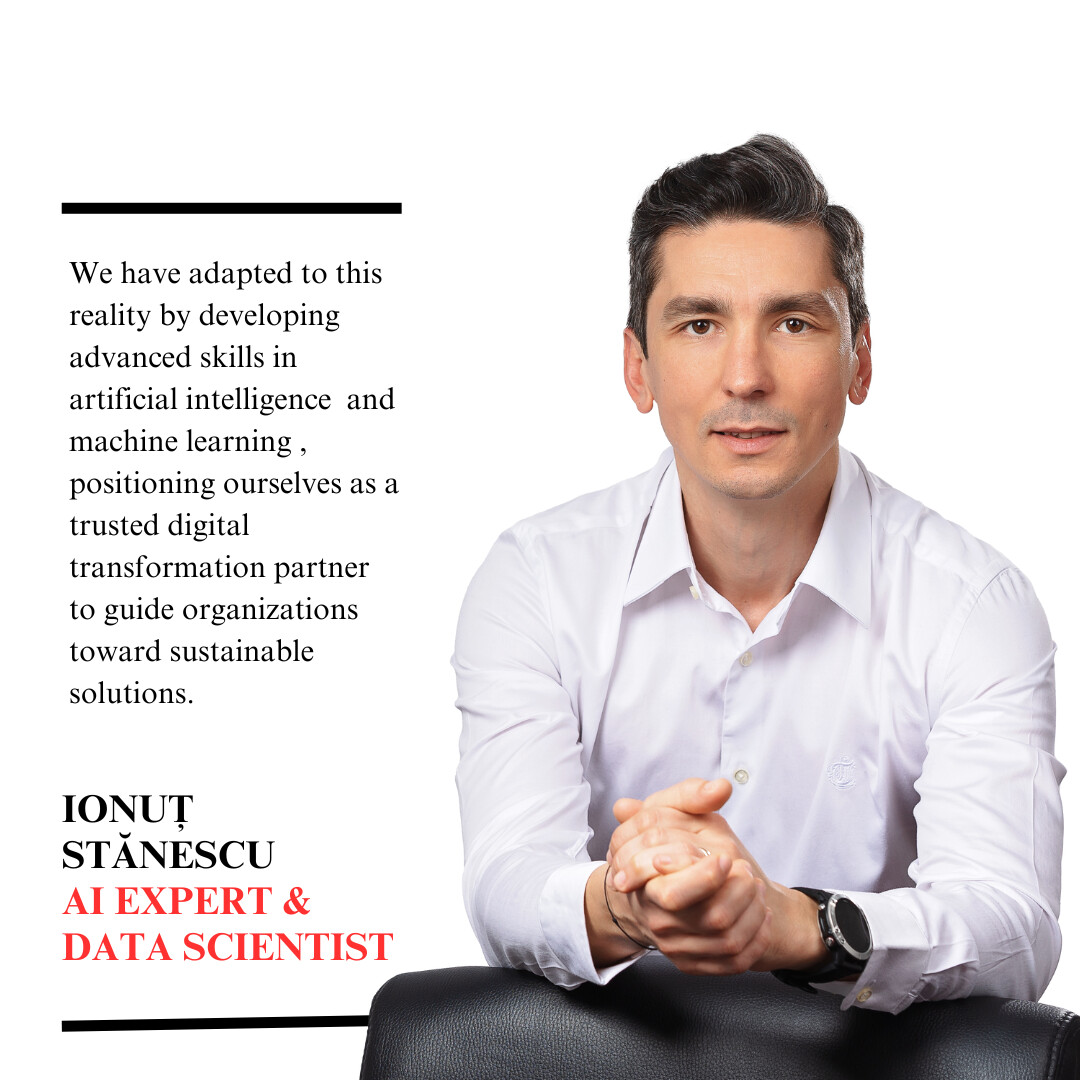In 2024, artificial intelligence was not just a technology – it was a global catalyst, a transformative force that challenged industries, rewrote rules, and redefined the boundaries of what we consider possible. It captivated, divided, inspired, and frightened. Over the past 12 months, AI became more than a topic of discussion: it became the battleground for our ideas, hopes, and fears.

A mirror in which society saw its own aspirations, fears, and contradictions
On the front of innovation, AI reached impressive heights. An algorithm shortened the process of discovering a vaccine from years to months, saving lives in a race against time. In education, AI-powered platforms provided lessons tailored to individual levels, opening doors for millions. In art, artificial intelligence created masterpieces that sparked admiration but also fierce controversy.
While the EU imposes rules through the AI Act, limiting risky uses, in Asia, we find giants accelerating the pace, betting on innovation without limits, all in an environment that is still unregulated. America, caught in between, has oscillated between regulation and the “greed” of the free market. The result? A fragmented world where each region plays by its own rules in the race for technological dominance.
But the challenges didn’t stop at laws and regulations. 2024 brought a historic first in healthcare: AI co-authored a vaccine for a new strain of the flu virus. Hospitals adopted predictive models for resource management, and AI robots performed complex surgeries, reducing error rates to record levels.
But what happens when AI makes a mistake? One of the controversies of the year, a medical diagnostic algorithm, failed. Incidents like this fueled the debate about the limits and responsibilities of using AI in healthcare.
Moreover, deepfakes reached new heights of manipulation, undermining trust in information and putting democracies under siege.
Despite the controversies, AI brought hope. In the fight against climate change, algorithms optimized energy networks and reduced food waste, offering tangible solutions to a global problem. In space exploration, artificial intelligence took the lead where humans cannot reach, redefining the boundaries of exploration.
The generative world: creativity at its peak or digital decadence?
Generative AI was the star of the show in 2024. ChatGPT 5 and Bard AI pushed the boundaries of dialogue, offering integrated solutions for coding, design, and business strategy. Surprisingly, the arts field benefited massively: AI-generated music reached the charts, and Hollywood embraced artificial intelligence for scripts and visual effects.
However, a new problem emerged: authenticity. Writers, artists, and creators worldwide protested against the use of AI models that learned from their works without consent. So, who owns creativity in the era of algorithms?
How AI is shaping the local landscape: Romania facing a technological transformation
Artificial intelligence is no longer just an abstract concept. It is now a reality that has gained ground and is shaping the local business environment. The #Connections experts take a deep look and analyze its impact on the local business landscape and developments in this field that will undoubtedly influence the future.
“Adopting AI-based technologies represents a huge opportunity for the business environment in Romania. In 2024, we observed a significant increase in demand for solutions that optimize costs and enhance operational efficiency,” says Ionuț Stănescu, AI Expert & Data Scientist at Connections.
Innovation with impact: AI and ML solutions implemented by Connections
Connections, a top player in the IT solutions industry, continues to strengthen its leadership position in innovation by integrating artificial intelligence (AI) and machine learning (ML) technologies into its portfolio of products and services. Among the notable achievements are Scanner ID and QuickMerlin, solutions that address critical needs for automation and process optimization for various types of companies.
These solutions are just the beginning. Many of the complex projects undertaken by Connections in various industries include AI and ML components, demonstrating our commitment to the digital transformation of our clients.
The Interest of the Romanian Business Environment in AI: Present and Future
Currently, the business environment in Romania is showing an increasing interest in adopting AI and ML-based solutions. Companies understand that technology can be a key competitive advantage, allowing them to differentiate themselves in an increasingly competitive business landscape.“In the next 1-3 years, we expect this interest to grow exponentially, especially in industries such as retail, financial-banking, manufacturing, and logistics. For example, organizations in the financial sector are exploring AI technologies to improve transaction security and customer experience, while the manufacturing sector is investing in intelligent automation solutions to optimize costs and resources,” mentions Ionuț.
As technology becomes more accessible and companies begin to see concrete results, it is expected that small and medium-sized companies will also adopt these innovative solutions, accelerating the transition to a digitalized future.
Trends and changes we anticipate locally
The adoption of AI in Romania will be influenced by several factors:
- Increased investment in technology – Large companies with significant budgets will accelerate the implementation of AI technologies.
- Pro-technology regulations and policies – The government and public institutions will begin to support digitalization initiatives.
- Education and accessibility – Educational programs will focus on digital skills.
- Focus on sustainability and efficiency – AI will become a key tool in companies’ sustainability strategies.

What role will we choose to give it in our collective story?
Yet, amidst this dizzying progress, an uncomfortable truth has become evident: AI is a reflection of us – of human values, biases, and intentions. In 2024, we have seen not only what technology can achieve but also how it can amplify both the best and the worst in us.This year has been a test – of technological limits, of our capacity to adapt, and of our collective ethics. AI has been the chameleon that took the shape of the society that created it.
Now, at the end of this tumultuous year, the lingering question is not what AI can do, but what we choose to do with it. Because the true story of artificial intelligence is not written by algorithms, bots, or virtual assistants. It is written by us and by our decisions.

























